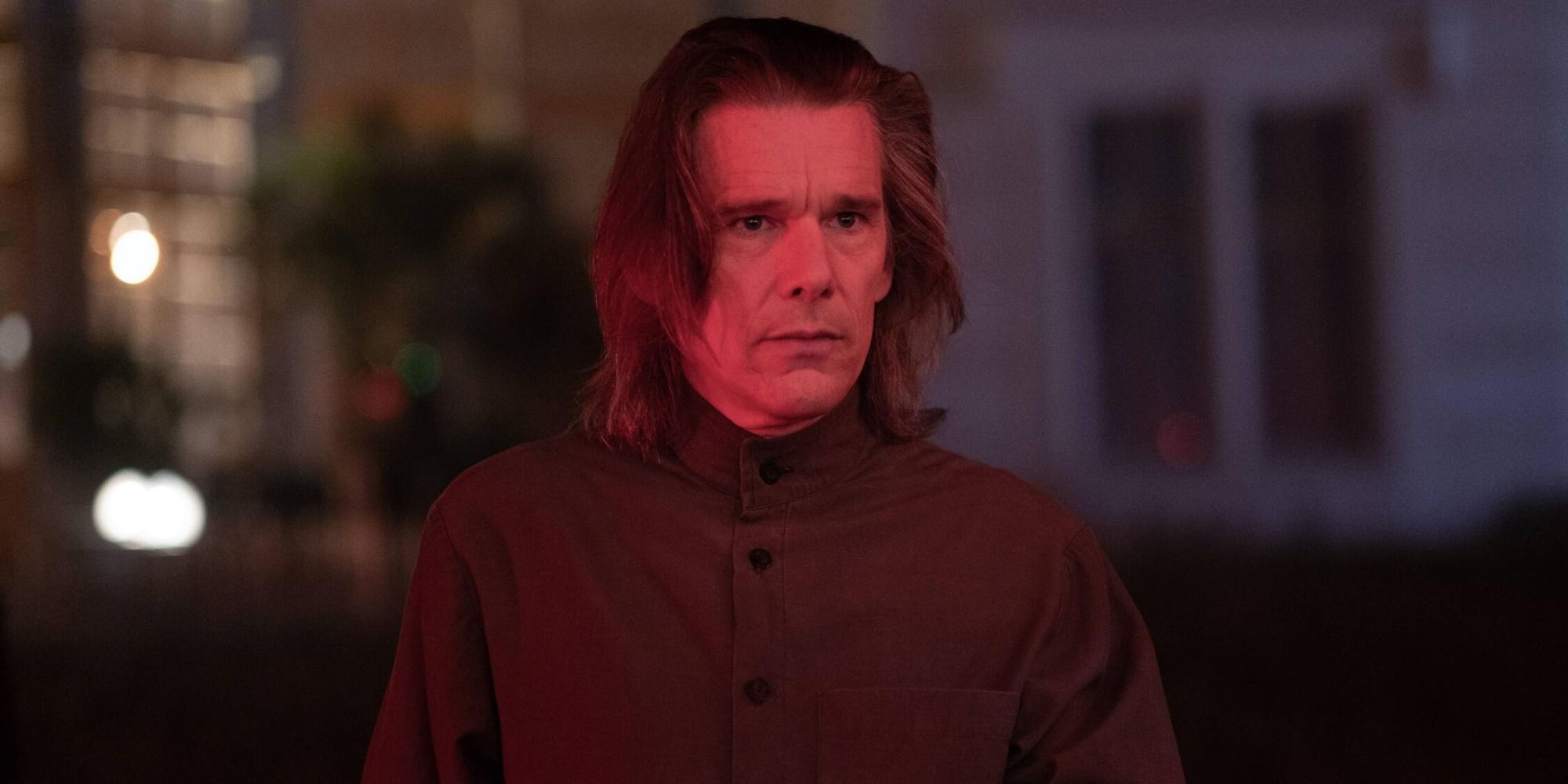Moon Knight was a unique venture for the Marvel Cinematic Universe as it was more a character study than it was a superhero show. Not since the original Iron Man had the studio taken on such a task that would expand the MCU's lore while also delving into a complex character such as Marc Spector. But Marvel Studios' Assembled: The Making of Moon Knight revealed that Marc wasn't the only profoundly complex character in the series.
Ethan Hawke's Arthur Harrow was a follower of the Goddess Ammit and ex-avatar of Khonshu. He believed in a world where only those who were truly good could live on it, which would have meant the deaths of thousands who had not committed any wrongdoing. While he had immense power, he carried himself in a reserved state and often thought before he acted. This was also seen in his traits, such as his choice to constantly step on broken glass. Surprisingly, this was a choice made by Hawke rather than the writers.
Initially, Moon Knight's opening scene of Harrow placing broken glass in his slippers wasn't meant to be the first thing audiences saw. However, when Hawke presented the idea, it offered a light bulb moment for the cast and crew as it meant that Harrow's entire character could be conveyed without the use of a single word. This nonverbal use of storytelling later served as the character's foundation throughout the rest of the season.
In the past, villains of the MCU have been defined based on their actions and motivations. But aside from Thanos, fewer villains have become so devoted to their cause that they no longer saw themselves as an enemy. Because of this, their convictions were even stronger and therefore made them far more likable in the eyes of an average citizen. This was why Harrow gathered so many followers based on preaching and showcasing the powers of Ammit. He may give off the aura of a cult leader on the outside looking in, but because of his timid stance and monochromatic style, he was otherwise non-violent. But for audiences who knew how deep Harrow's devotion went, these disarming qualities made him even more intimidating.
Before Harrow's even seen on screen, the crunch of his steps could be heard in the distance. This informed viewers that Harrow was near, and the fact that each step was painful for him, it showed how far he'd go for his cause. Rather than a sense of relief or understanding for the character, it instinctively put audiences on edge as they knew this man wasn't afraid to make tough sacrifices for his cause. As a result, those who wouldn't support his cause would face some form of judgment for their transgressions. To make matters even more terrifying was that because he was capable of torturing himself, he served as the example of true devotion and gave no reason for those who followed him to doubt his beliefs. Therefore, enemies would feel more alienated than ever should they seek help from the outside.
Ethan Hawke brought a powerful intensity to the role of Arthur Harrow in Moon Knight. But that power came full force in the decision to have him walk on glass throughout the series. It established a terrifying foundation for audiences to tie him to, but it also showed his limitless devotion to Ammit. And production-wise, it also gave a sense of fear whenever it was heard on camera as viewers knew that Harrow brought with him an army and powers that weren't fully understood. In the end, the change proved that even the smallest alteration could leave big results.
Moon Knight is currently streaming on Disney+.




